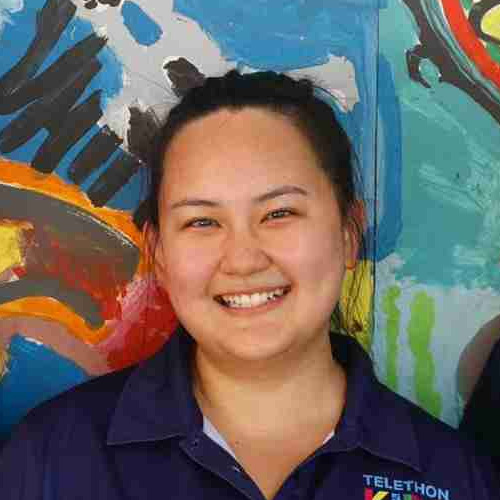
Bernadette Wong
PhD Candidate and Research Assistant
BSc(Hons)
bernadette.wong@thekids.org.au
https://www.linkedin.com/in/berniewwt/Bernadette is a researcher focused on solving the persistent challenge of timely and accurate diagnosis of preventable Strep A diseases in under-resourced settings.
As a PhD candidate with the Healthy Skin Team, she is advancing ARF disease prevention through the evaluation and implementation of Strep A molecular point-of-care testing, both in remote Australia and in global health settings. With a strong belief in equitable health innovations, Bernadette works to generate high-quality, evidence-based solutions that enable community-informed technology adoption in underserved regions.
As a Research Assistant with the Strep A Translation Team, Bernadette leverages systems-based thinking and implementation science to develop strategic tools for optimising knowledge management and enhancing collaborations and communications in Strep A, ARF and RHD research. Her work focuses on building innovative, scalable and efficient systems that can support more impactful and sustainable outcomes in interdisciplinary research.
Education and Qualifications
- Doctor of Philosophy – The University of Western Australia (2024 – present)
- Bachelor of Biomedical Science (First Class Honours) – Murdoch University (2020-2021)
- The BridgeTech Program – Queensland University of Technology (2023)
- Perth Biodesign – The University of Western Australia (2020-2021)
Awards/Honours
- 2024, Wesfarmers Centre of Vaccines and Infectious Diseases Seed Grant - The Kids Research Institute Australia
- 2024, International Stipend Scholarship - The University of Western Australia
- 2024, International Tuition Fee Scholarship - The University of Western Australia
- 2024, Wesfarmers Centre of Vaccines and Infectious Diseases Top-up Scholarship - The Kids Research Institute Australia
- 2023, Wesfarmers Centre of Vaccines and Infectious Diseases Training Awards - The Kids Research Institute Australia
- 2021, International Merit Award for Academic Excellence - Murdoch University
Active Collaborations
- START Strep A Program with Kirby Institute (The University of New South Wales) and International Centre for Point-of-Care Testing (Flinders University)
Published research
Longitudinal surveillance of group A streptococcal pharyngitis and impetigo in remote Western Australian school children informs acute rheumatic fever prevention
The prevalence of impetigo and pharyngitis - which are both superficial group A streptococcus (GAS) infections that precede acute rheumatic fever - is poorly defined. Guidelines recommend the early diagnosis of both infections to prevent ARF; however, screening to enable the concurrent detection of these infections in high-risk populations has rarely been performed.
Transmission potential of Streptococcus pyogenes during a controlled human infection trial of pharyngitis
Controlled human infection (CHI) models can provide insights into transmission of pathogens such as Streptococcus pyogenes (Strep A). As part of the Controlled Human Infection with Penicillin for Streptococcus pyogenes (CHIPS) trial, we explored the potential for transmission among participants deliberately infected with the Strep A emm75 strain.
The application of environmental health assessment strategies to detect Streptococcus pyogenes in Kimberley school classrooms
Children spend almost one-third of their waking hours at school. Streptococcus pyogenes (Strep A) is a common childhood bacterial infection that can progress to causing serious disease. We aimed to detect Strep A in classrooms by using environmental settle plates and swabbing of high-touch surfaces in two remote schools in the Kimberley, Western Australia.
Searching for Strep A in the clinical environment during a human challenge trial: a sub-study protocol
Streptococcus pyogenes (also known as group A Streptococcus , Strep A) is an obligate human pathogen with significant global morbidity and mortality. Transmission is believed to occur primarily between individuals via respiratory droplets, but knowledge about other potential sources of transmission via aerosols or the environment is limited. Such knowledge is required to design optimal interventions to control transmission, particularly in endemic settings.
